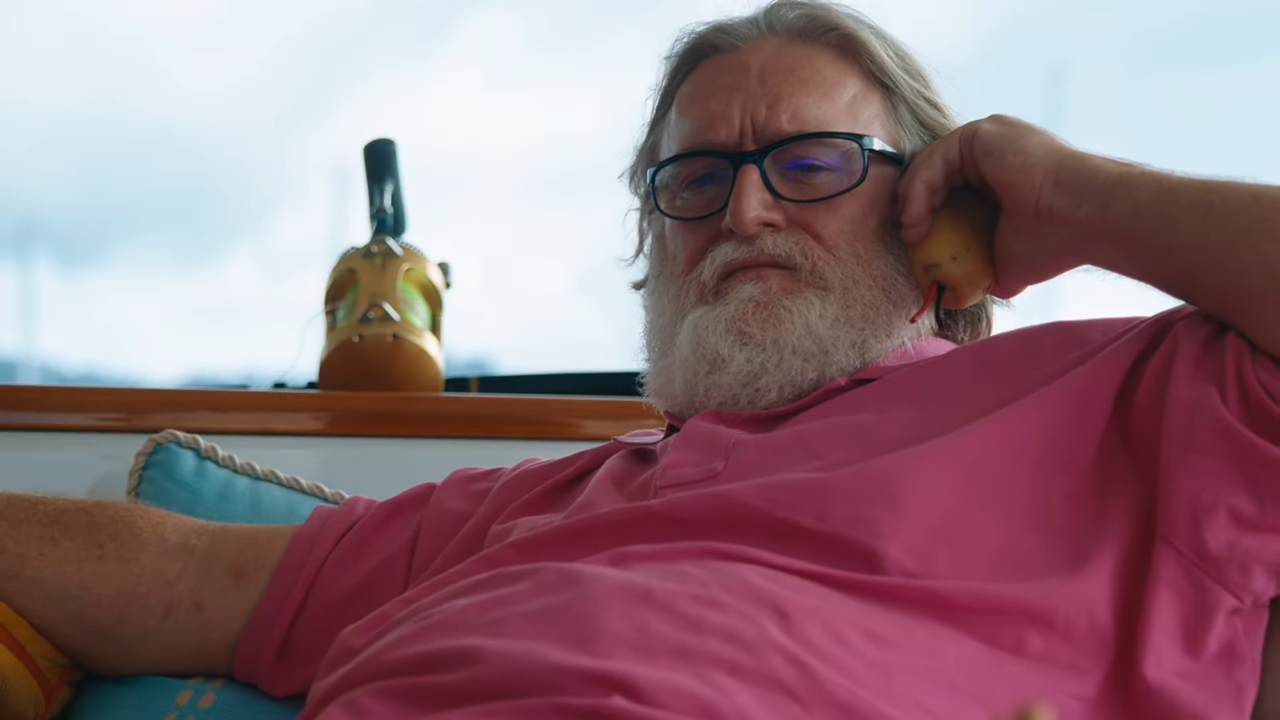
First Spotted by 80 Level, Secret Tape's massive documentary on the development of Half-Life 2 contains an almost unbelievable story of how Valve was saved from legal and financial ruin thanks to the actions of a single summer intern, paving the way for PC gaming as we know it today.
The trouble started when Valve and Half-Life's original publisher, Sierra, was acquired by French conglomerate Vivendi. Vivendi began distributing Counter-Strike to South Korean internet cafes, which Valve objected to, arguing that it fell outside the bounds of the original distribution deal with Sierra. Valve COO Scott Lynch recalled seeing this as a minor dispute, with Valve only seeking recognition that this lay beyond the original agreement. When Vivendi refused to budge, Valve took it to court, still seeking only recognition and coverage of what were, at this juncture, nominal legal fees.
According to Lynch, "Vivendi decided to go World War 3" in response. "The next thing we know, here comes this big stack of counter-claims," said Valve general counsel Karl Quackenbush. "Everything from canceling the 2001 agreement, to obtaining ownership of all the Half-Life IP, to keeping us from doing Steam."
It's difficult to imagine looking back now, but in the circa 2002-2004 span of this story, Valve was still just a normal, if particularly successful and influential game developer, while the multinational Vivendi brought overwhelming firepower to the legal dispute. What's more, Vivendi was allegedly out for blood, targeting Lynch and Newell personally in addition to suing Valve. "We're gonna put Valve out of business, and we're gonna bankrupt the two of you," Lynch said of Vivendi's strategy.
"The company was pretty close to going bankrupt," Newell recalled. "I was pretty close to going personally bankrupt—we went all in, there was no money left."
"There came a point where Gabe had pretty much used up his liquid assets and he was like, 'Should I put the house on the market?'" said Lynch. "I was like, 'Yeah I think it's the time where you put the house on the market if we want to keep going.'"
The lawsuit would hang over the entire development of Half-Life 2, with many on the staff unaware at the time of how close the company came to going under. Close to Half-Life 2's launch, Valve caught an unbelievably lucky break: and this is where the summer intern comes in.
In a bit of malicious compliance, Vivendi turned over millions of pages of Korean language documents from its local subsidiary during the discovery phase of Valve's cybercafe lawsuit, with anything potentially useful to Valve buried under both the volume of material and a language barrier. Quackenbush turned to a summer intern identified only as "Andrew" in the documentary. A native Korean speaker who also majored in Korean language studies in college, Andrew found the needle in the haystack: An email where one Korean Vivendi executive discussed the destruction of documents related to the Valve case to their superior, with the implication that the more junior executive was ordered to do so. With this evidence in hand, Valve was able to turn the tables on Vivendi, securing a highly favorable settlement and full ownership of its IP moving forward.
Absent Andrew's timely intervention, Half-Life 2 likely would have still made it to market, but it's uncertain whether Valve could have survived the continued war of attrition with Vivendi, becoming another one of those legendary fallen developers like Looking Glass, Origin, or Troika. Left 4 Dead, Portal, Dota 2, Counter-Strike in its modern esport form, and most crucially Steam would not have existed, leading to our entire hobby looking very different today.
This wasn't the first close call in Valve's history. Monica Harrington, the company's chief marketing strategist in the early days, recently related a story about tense negotiations with publisher Sierra that secured Valve's ownership of and online distribution rights for the original Half-Life, setting the stage for Half-Life 2 and Steam.







